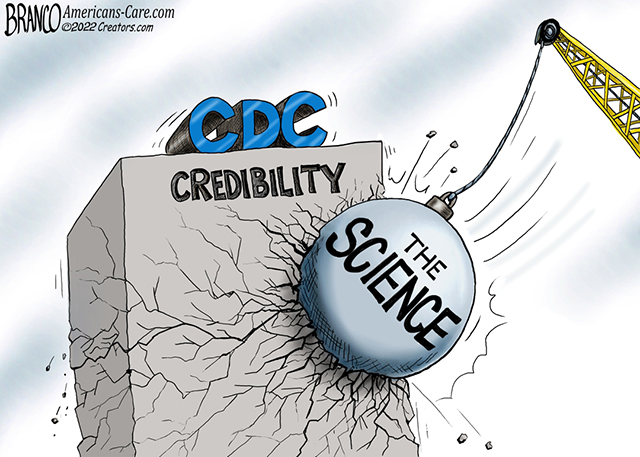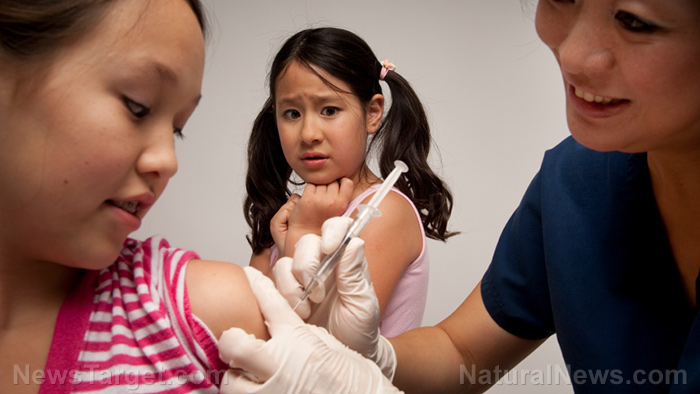Disposable no more: MIT team recommends reusable masks to save the environment while suffocating humans
07/23/2021 / By Mary Villareal

The COVID-19 pandemic has increased the threat of plastic pollution, as disposable face masks and other forms of personal protective equipment have become ubiquitous. In a study by the Massachusetts Institute of Technology, researchers have suggested cutting back on disposable face masks, recommending the use of reusable masks instead.
In recent times, face masks and personal protective equipment have become essential, not only for healthcare workers but also for the public. Disposable N95 masks, for instance, have been in high demand to prevent the spread of COVID-19. These masks carry both a financial and an environmental burden. The authors estimate that the pandemic is set to create around 7,200 tons of medical waste every day, most of which are face masks.
Cutting down the use of disposable face masks
Single-use face masks contain synthetic polymer materials such as polyurethane, polycarbonate, polypropylene, polyethylene, or polyester – plastic compounds that are known to pose a risk to the environment. In the report, the scientists noted that the amount of waste generated by face masks can be cut down with reusable masks or decontamination of regular N95 masks. These measures could allow health care workers to wear them for more than a day.
Reusable masks and decontamination can also drop costs and environmental waste by at least 75 percent compared to using a new mask for every patient encounter.
When N95 masks were in short supply at the early stages of the pandemic, health care workers were forced to wear one mask for a full day. Later, some hospitals began to use a decontamination system with hydrogen peroxide vapor to sterilize reusable masks, allowing them to be used for a few days.

“During a pandemic, there’s a priority to protect people from the virus, and certainly that remains a priority, but for the longer term, we have to catch up and do the right thing, and strongly consider and minimize the potential negative impact on the environment.” Giovanni Traverso, senior author of the study said. (Related: NYU Professor charged with “hate speech” after urging students to investigate propaganda behind mask mandates.)
Financial and environmental burden of face masks
Hospitals in the country have been using different strategies to cope with the fluctuating supply of masks caused by the pandemic. These may differ based on the availability of face masks and access to different decontamination systems.
The MIT researchers used patterns before and during the pandemic, such as using one N95 mask per patient encounter, one mask per day, reusing face masks using ultraviolet decontamination, reusing face masks using hydrogen peroxide decontamination, and the use of one surgical mask per day. They also considered the potential cost and waste generated by the reusable silicone mask that they are developing, which can be used with disposable or reusable N95 filters.
Researchers found that the reusable mask strategies could lead to a significant reduction in cost and generated waste. If each health care worker can reuse decontaminated N95 masks, costs would drop to about $1.4 billion to $1.7 billion over six months, and 13 million to 18 million kilograms less waste. Those numbers could potentially be reduced even more with reusable silicone N95 masks.
“Masks are here to stay for the foreseeable future, so it’s critical that we incorporate sustainability into their use,” Jacqueline Chi, lead author of the study said.
Traverso also noted that the focus of the study was on health care workers, who are likely to continue wearing masks in the foreseeable future, so the numbers are likely an underrepresentation of the total costs and environmental impact.
Traverso and his team started their company, Teal Bio, which is now refining and testing their reusable silicone masks and developing methods to mass manufacture them. The team is planning on seeking regulatory approval for the masks later this year, but their main priority is to make sure that the masks are effective for use.
“Whatever you’re using, you want to make sure you’re using something that’s going to protect you and others.”
Get more COVID-19 and other related news and updates at Pandemic.news.
Sources include:
Submit a correction >>
Tagged Under:
coronavirus, covid-19, decontamination, environmental impact, face masks, future science, infectious disease, pandemic, plastics, reusable masks, science, sterilization
This article may contain statements that reflect the opinion of the author


















